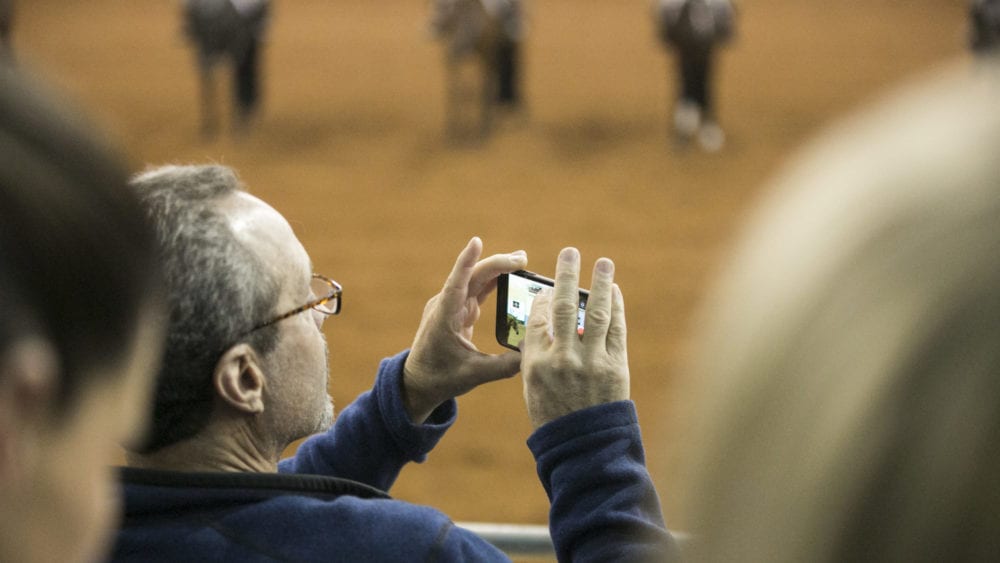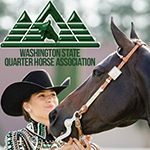Do you rock a Tik-Tok? Snapchat? Does your national breed, state, or local club manage a Facebook or Instagram account? Do you use computers and technology to interact with others in a digital space? Do you run an equine-related business wherein you supply staff with phones, computers, or other technology?
Chances are you answered yes to at least one of the questions above, and that means you, friend, are a digital citizen. In other words, you are, as defined by Karen Mossberger, a professor of information technology at MIT, one of “those who use the internet regularly and effectively.”
Current events and the realities of life during COVID-19 have led people to the Internet to seek information, voice opinions, and use the Internet and technology to participate in society. And, just like being a citizen in a society, being a digital citizen means being aware of the rights and responsibilities that help form our communities.
Here are some more questions for you: Have you ever witnessed a nasty comment war on a national breed, state, or local club website or social media page?
What do you do as a member of one of those digital communities if people are using screenshots and online tools to bully or spread rumors?
If you’re in a leadership role, how might you respond if someone your group has contracted with has posted content that is unprofessional on their personal social media pages?
In a world that presents a complex and often tricky situation stemming from technology use, this topic goes beyond tips and tricks for selling horses online or how to create an excellent social media presence for your group.
Good and bad, like it or not, technology (and our use of it) impacts our organizations, communities, and the world.
What is digital citizenship?
Digital citizenship refers to the responsible use of technology by anyone who uses computers, the internet, and digital devices to engage with society on any level.
The term and concept are most familiar to those who work in education or an education-related industry, as the need to teach young people digital citizenship concepts and skills became apparent in the 2000s due to the increased embeddedness of technology in our daily lives.
Long story short: we all use technology and the internet a lot more than we used to, and with that comes the need to think about how to act safely and responsibly on those platforms.
Core components of digital citizenship.
There are many ways to slice up what it means to be a digital citizen. Still, according to a leading technology organization, International Society for Technology in Education (ISTE), the following items make up the core components of digital citizenship. It is helpful to think about these components as parts of a framework that helps to make our online (and real-life) communities and experiences better.
- Digital Identity and Reputation
- Awareness of the permanence of your actions in the digital world.
- Safety & Ethics
- Engage in positive, safe, legal, and ethical behavior when using technology, including social interactions online or when using networked devices
- Rights and Obligations
- Demonstrate an understanding of and respect for the rights and obligations of using and sharing intellectual property.
- Digital Privacy and Security
- Manage your personal data to maintain and are aware of data-collection technology used to track their navigation online.
Why do equestrians need digital citizenship?
Being an equestrian may often feel like living in a bubble at times, but the technology as much impacts us in our daily lives as in anything else. And, especially for adults, the pace at which new technologies change our lives is dizzying to keep up with. Arming yourself with some digital citizenship knowledge and skills is a way to help you make the most of the technology you use.
Let’s break down digital citizenship for equestrians by component.
- Digital Identity and Reputation: Do you advertise (a stunning layout in the latest GoMag, maybe)? Do you carefully select your show clothes, tack, and presentation? This is all part of the identity you’re presenting to the horse show world.
Likewise, if you’ve got an online presence, whether it’s email, Facebook, or whatever new platform is next, you’re curating an identity based on what you post. If you’re a youth competitor, you want to think about the permanence of your online actions.
Many colleges now actively look at and consider your online profiles in admissions and scholarship decisions. Adults in many roles likewise can benefit from thinking about what they want their “digital identity” to be online.
Today, someone’s first impression of you might be what they see you post online as opposed to an in-person connection, and those first impressions can be sticky.
- Safety & Ethics: The horse industry is not immune to scams run on online platforms. Here are some recent examples of safety/ethics issues in the horse world.
A show clothes designer posts pictures of her fabulous work, someone else downloads the image and then creates ads for their own business representing the designs as their own.
A trainer posts a sales video of a prospect, someone else downloads it and speeds it up or slows it down or otherwise edits the footage to change the representation of the horse.
You run a Facebook page for your local Youth club, and people enjoy sharing pictures of the Youth members – have parents given consent? Are these images protected or private? How are followers of such pages vetted?
All of those examples and questions are things that go into thinking about and having a plan for acting safely and ethically online. If you run an organization’s website or social media accounts, you might consider posting community guidelines that help protect your members against scams or promote positive interactions.
If you run a business that provides technology to staff or volunteers, you might consider having users sign an “acceptable use policy” that outlines expectations for the safe, ethical use of the technology.
- Rights and Obligations: What is yours to share? If you attend a horse show and the photographer takes some great photos of you and your partner in action, a digital citizen understands that you can’t just screenshot that perfection and share away on your Instagram account. Why? Copyright law, for starters. There are many situations in which it may seem harmless, but is infringing on someone else’s rights (here, the photographers right to their creative and intellectual property).
- Digital Privacy and Security: When you sign up for a group or horse-related account, what information are they gathering about you, and who are they sharing it with? You should look for transparent privacy policies before sharing your information online or signing up for accounts. Many of our shows and breed associations collect detailed and sensitive personal information about their members. As digital citizens, you should look for and expect that your information is protected from identity theft or exposure.
Parting thoughts.
Circling back to some of those “tough questions” mentioned earlier. Many situations from comment wars about rule changes to not knowing what to do if inappropriate content is shared to your group’s page can be defused with a little digital citizenship. Consider how you as an individual or how your group or business can use technology for the greater good by doing the following:
-
- Setting boundaries/expectations around online behavior
- Learning to use these platforms to promote the positive and good in our industry
- Modeling for youth respectful, professional interactions
- Promoting inclusivity in the industry (welcoming new members and growing our organizations and clubs)
Where do you see a need for digital citizenship in the horse world? Let us know.








